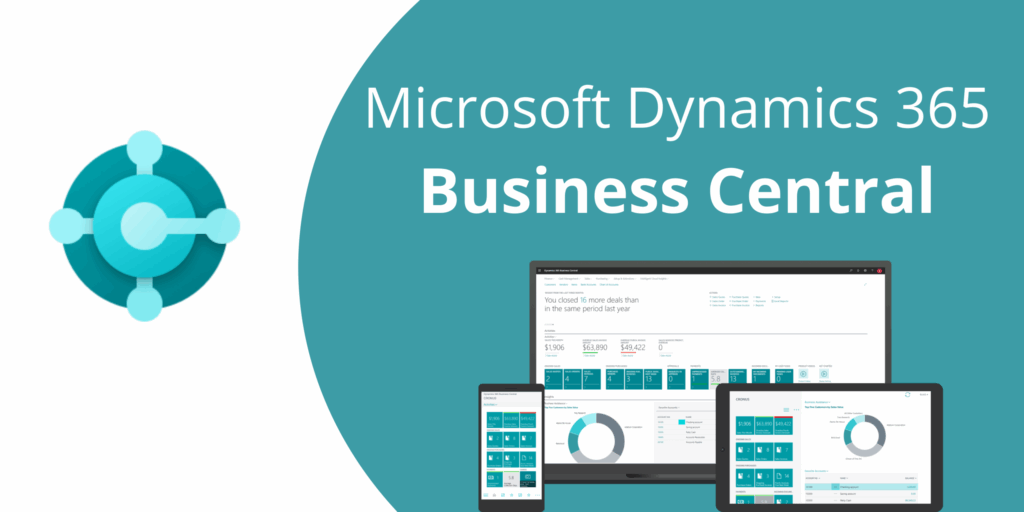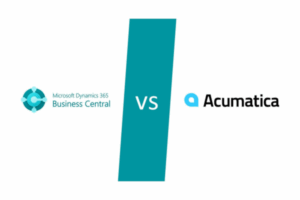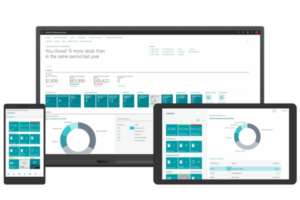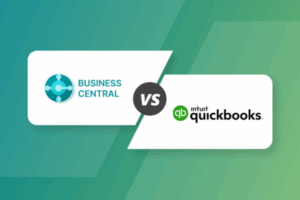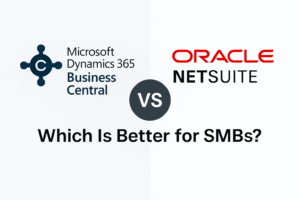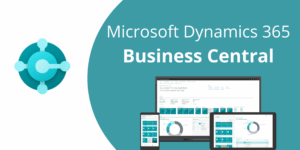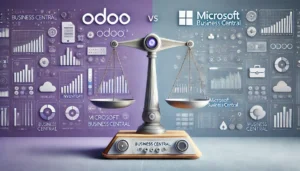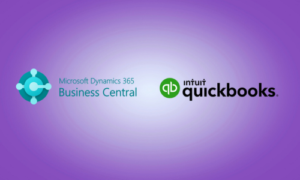1. Your Budget Is Too Small
Business Central is a mid-market ERP, and that means it comes with mid-market costs. If your budget is under about $25,000 for implementation and less than $2,000 per month for licensing, you will struggle to make it work.
A typical 20-user Essentials setup could run close to $90K in the first year once you factor in licenses, implementation, and support. For a small business that is still figuring out processes or running lean, that level of investment may not be realistic.
Better fits in this scenario:
-
QuickBooks Online or Xero if you want affordable cloud accounting.
-
FreshBooks or Wave for very small operations.
-
Industry-specific SaaS tools if all you need is inventory tracking or job costing without full ERP.
2. You Only Need Basic Accounting
Business Central shines when you need more than just accounting. If all you need is invoicing, paying bills, payroll, and a profit-and-loss report, then it is overkill.
Let’s compare:
| Feature | QuickBooks Online | Business Central |
|---|---|---|
| Basic Accounting | ✅ Excellent | ✅ Included |
| Payroll | ✅ Add-on | ➖ Add-on/3rd party |
| Project Tracking | ✅ Basic | ✅ Advanced |
| Manufacturing | ❌ Not available | ✅ Premium license |
| Distribution/Inventory | ❌ Limited | ✅ Strong |
For businesses with fewer than 20 employees, where accounting and payroll are the main needs, QuickBooks or Sage Intacct often make more sense.
3. You’re Not Ready for Cloud ERP
Business Central is cloud-first and that comes with big advantages like automatic updates, remote access, and built-in security. But not every company is ready for that move.
-
If your IT leadership insists on on-premise systems, you may run into resistance.
-
If your internet connectivity is unreliable, you could experience performance issues.
-
If your industry has unusual data residency requirements, you may face compliance challenges.
Some companies still prefer the control of on-prem systems like Dynamics GP or NAV, even though Microsoft is winding those down. If you are not ready to move to the cloud, the timing may not be right for Business Central.
4. You Need Extremely Niche Functionality
Business Central is flexible, but it is not purpose-built for every industry. With add-ons, you can cover a lot of ground, but in certain verticals, specialized ERPs win out.
Examples:
-
Construction: Business Central can handle job costing, but if you want detailed estimating and project management, Procore or Sage 300 CRE may fit better.
-
Pharmaceuticals: You may need advanced lot tracking, FDA compliance, and quality modules that are easier to find in SAP or Infor.
-
Aerospace: Strict compliance and government contracting often push companies toward Deltek or Epicor.
If your ERP must solve a very specific compliance or regulatory need, Business Central might not be the best match.
5. You Don’t Have Internal Resources for an Implementation
ERP projects are not “set it and forget it.” They demand input from your team. You will need someone inside your business who can lead the project, gather requirements, clean data, and test the system before go-live.
A real example:
One manufacturer with 40 employees bought Business Central but tried to “leave it to the partner.” With no internal lead, data migration stalled, employees were not trained, and the project slipped six months behind. When they finally assigned a project manager, progress turned around.
If your company is already stretched thin and cannot free up at least one person to own the project internally, then it may not be the right time to invest in Business Central.
6. You Need Deep CRM or Advanced HR and Payroll Out of the Box
Business Central has light CRM features (contacts, sales orders, opportunities) and payroll usually comes through add-ons. But if your business expects Salesforce-level CRM or ADP-level HR and payroll out of the box, you will be disappointed.
What Business Central does well:
-
Integrates tightly with Outlook, Excel, and Microsoft Teams.
-
Provides one place for finance, supply chain, and operations.
Where it falls short:
-
Advanced marketing automation and customer pipelines (CRM).
-
Full HR suites with recruiting, benefits, and advanced payroll.
If your business wants all-in-one ERP + CRM + HR, you may find a better fit with NetSuite or SAP Business One.
7. You Need Ultra-Cheap or Ultra-Simple Setup
Business Central is not plug-and-play. Even a small implementation takes weeks to configure, test, and migrate data. If your budget or expectations are for an ERP in two weeks for $5K, you will be disappointed.
This is where lightweight ERPs like Odoo or Zoho ERP can sometimes make more sense. They are not as robust, but they are simpler to deploy quickly and cheaply.
What to Do if Business Central Is Not the Right Fit
If you recognized yourself in any of these signs, that is not a bad thing. It just means Business Central may not be the right choice today.
Your options:
-
Stay with QuickBooks, Sage, or Xero until growth pushes you into ERP territory.
-
Explore Acumatica or Odoo if you want cloud ERP but with a lighter cost and scope.
-
Look into industry-specific ERPs if compliance or niche processes drive your requirements.
The key is to match the system to your size, budget, and growth goals rather than buying what everyone else seems to be buying.
FAQs
Is Business Central good for small businesses?
Yes, if you have at least 20+ employees and complexity beyond basic accounting. Very small companies usually find it too heavy.
Can I start small with Business Central?
Yes, you can start with Essentials and a small number of users. But you will still face implementation costs, so it is rarely worth it for micro-businesses.
What are the main alternatives to Business Central?
NetSuite, Acumatica, Odoo, Sage Intacct, SAP Business One, and vertical-specific ERPs like Epicor or Procore.
What happens if I outgrow QuickBooks?
That is usually when Business Central becomes attractive. Once your processes get complex, inventory gets messy, or reporting takes hours in spreadsheets, it may be time to move up.
Conclusion
Business Central is a strong option for many SMBs, but it is not one-size-fits-all. Being upfront about where it may not fit helps you make better decisions and avoid costly mistakes.
At Alchemy 365, we believe transparency is the best way to build trust. If you are not sure whether Business Central is right for you, book a short call. We will walk you through your options and help you decide if Business Central is a good match or if another system might serve you better.
